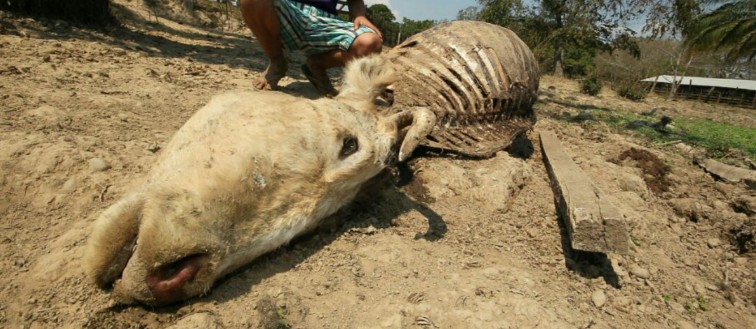State of emergency in Bolivia amid worst drought in 25 years

South American country of Bolivia is experiencing its worst drought in 25 years, state officials said and declared a state of emergency on Monday, November 21, 2016.
The government declared the state of emergency due to water shortages in large swaths of the country, making funds available to alleviate the crisis, particularly in the agricultural sector. The declaration comes after 172 of the country's 339 municipalities declared their own emergencies related to the drought.
Bolivia's Vice Ministry of Civil Defense estimated that the drought has affected 125 000 families and threatened 290 000 hectares (716 605 acres) of agricultural land and 360 000 heads of cattle, according to Thomson Reuters Foundation.
The Corque municipality has been hit particularly hard, according to a report from the Pan American Health Organisation, and 70% of the population lacks drinking water.
"We have to be prepared for the worst," President Evo Morales said and called on local governments to devote funds and workers to drill wells and transport water to cities in vehicles, with the support of the armed forces, from nearby bodies of water.
"The current crisis is an opportunity to plan large investments to adapt to the effects of climate change on the country's water supply," Morales added.
La Paz, the seat of the Bolivian government, already receives water for just 3 hours every three days, as three main dams that supply water to the city are almost dry. The main Ajuan Khota dam is at 1% of capacity, while the other two dams are averaging 8% capacity. This measure in La Paz has now become a permanent one.
The drought has prompted protests in major cities and conflicts between miners and farmers over the use of aquifers, Reuters added.
On Thursday, November 17, leaders of the Federation of Town Councils, known as Fejuve, held officials and water authorities hostage after the minister of environment and water, Alexandra Moreira, failed to turn up for a meeting to report on a water supply project in the city of El Alto. Police were eventually called to release the hostages, including Ruben Mendez, Bolivia's deputy water minister.
According to the Mongabay, the National Agriculture and Forestry Innovation Institute announced that it would launch drought-resistant seeds of wheat, rice, and soybeans.
The country's weather service says no rain is expected until early December.
In recent decades, Bolivian glaciers have shrunk drastically and affected the lives of millions who depend on glacier melt for water.
Featured image: The livestock situation in Cercado, Yacuma, and Marbán provinces in central Beni department. Photo courtesy of La Palabra del Beni.

Commenting rules and guidelines
We value the thoughts and opinions of our readers and welcome healthy discussions on our website. In order to maintain a respectful and positive community, we ask that all commenters follow these rules.